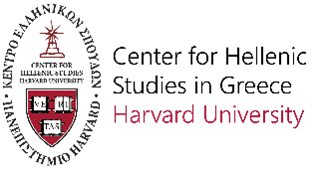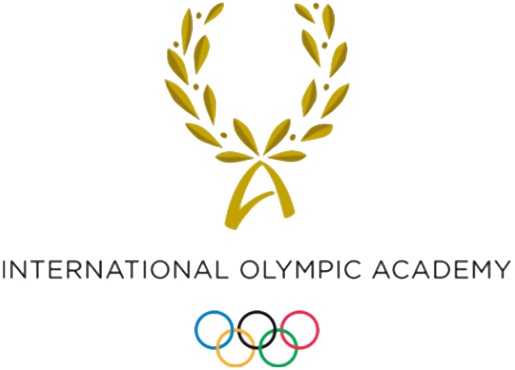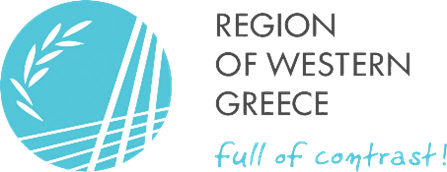Κey information
- Dates: July 9-12, 2024
- Location: International Olympic Academy (IOA) premises, Olympia, Greece
- Organized by: CHS Greece and US, IOA, Region of Western Greece, in cooperation with the University of Patras and the Stark Center for Physical Culture and Sport at the University of Texas at Austin and with the support of the AEGEAS Non-Profit Civil Company
- Open to: Undergraduate, in their 3rd year of studies and higher, and postgraduate (masters and PhD) students from Universities in Greece (up to 35 participants). The program will also welcome up to 10 undergraduate students from the US.
- Application Period: April 11-May 15, 2024
- Language: English
- Faculty: Charles Stocking, Academic Director of the program (University of Texas at Austin/ CHS), Peter Miller (University of Winnipeg), Heather Reid (Exedra Mediterranean Center), Angela Schneider (University of Western Ontario), and guest speaker Alexandra Kalogera (Olympiacos Piraeus)
- Activity Administration: Marilena Katsadoraki (IOA), Mina Tsentourou (CHS Greece)
About the program
Overview
For four days this summer a diverse body of students and faculty will convene in Olympia, the birthplace of the Olympic Games, to examine how sport shaped ancient models of knowledge, and how, in turn, the ancient athletic-knowledge complex, known as paideia, served as a model for modern universities and professional sports.
In the state-of-the-art facilities of the IOA, during plenary sessions and small-group discussions participants will engage in experiential learning, conversation, and debate around key themes and topics introduced by the faculty. Additionally, faculty-led sessions on the archaeological site and museum of Ancient Olympia, and the Museum of Olympic History, will give students a sense of vital connection to the embodied past.
The list of faculty members for this year’s program consists of:
- Charles Stocking, Academic Director of the Sport and Education Program, Associate Professor at the Department of Kinesiology and Health Education, University of Texas at Austin, and Associate of the Center for Hellenic Studies, Harvard University
- Peter J. Miller, Associate Professor and Chair of the Classics Department, University of Winnipeg
- Heather Reid, Scholar in Residence at the Exedra Mediterranean Center in Siracusa, Sicily, and Professor Emerita of Philosophy at Morningside College in Sioux City, Iowa
- Angela Schneider, Professor at the School of Kinesiology and Director of the International Centre for Olympic Studies, University of Western Ontario
and guest speaker:
- Alexandra Kalogera, Electrical Engineer and Water Polo Team Manager, Olympiacos Piraeus
The 2024 Sport and Education Program is the successor initiative of the multiyear International Scholars' Symposium on "Sports, Society, and Culture" co-organized by Harvard's Center for Hellenic Studies in Washington DC, and in Greece, and the International Olympic Academy between 2012-2023. Building upon the highly successful collaboration of institutions and the important academic legacy of the dozen Symposia that preceded it, the program is set to offer a unique opportunity to explore the historical, social, and practical connections between sport and education, from the ancient Olympics to the modern university system.
Theoretical framework and goals
It is well acknowledged that the modern Olympic revival movement began, in part, as an effort to reform the educational systems of Greece, Europe and North America in light of the Classical past. According to Pierre de Coubertin, it was the ancient Greek gymnasium, with its focus on the cultivation of mind and body, which served as the inspiration and model for the modern Olympics. At the same time, the precise role that sport should continue to play in education, especially at the university level, is currently an object of intense debate and controversy.
Because the topic of sport and education is not only an object of academic interest, but also presents modern practical issues, this program will depart from traditional academic style programs, aiming to create sustained dialogue between historians, exercise scientists, sports psychologists, coaches, athletes, and students from around the world. Scholars and professionals will come together to explore the history of sport with a specific view to its future role in education. In the program, students from Europe and North America will have the opportunity to experience the archaeology of ancient Olympia while engaging in historical inquiry, philosophical debates, and hands-on practical exercises related to mind-body learning. Thus, the unique combination of speakers, participants, and activities will allow for three major learning outcomes:
- increased historical knowledge on the Classical past and its influence today;
- new pedagogical methods;
- and new perspectives on future best practices and policies at every level of the global sport-education complex.
The expansion of these goals is designed to continue in future years, with the development of a dedicated open-access online database of written resources and multimedia, the first material of which will be sourced from the 2024 program.
Seminars
The first three days of the program, apart from other activities, will include small group seminar-type sessions, bolstered by the exchange of ideas and fruitful discussions between faculty and students. Each seminar day will center around one main theme.
Day 1 (July 9): Sport and Education in Ancient Greece
Organized, civic education in Ancient Greece was intimately associated with athletic training beginning as early as the sixth century BC. Throughout the Archaic and Classical periods, ancient gymnasia became an increasing central aspect of every Greek city. From ancient sources pertaining to Athens, Sparta, and elsewhere, it became clear that the practice of paideia through athletic training was to cultivate values such as excellence, courage, moderation, endurance as well as beauty. Indeed, the values of education and athletics were often debated, and this is perhaps why ancient gymnasia were not only places of basic physical and mental education but were also major venues for the development of philosophy. This first day will therefore give students an opportunity to explore the history of interdependence between athletics and education in ancient Greek culture.
Day 2 (July 10): Sport, Education, and Olympic Revival
Education played an equally influential role in the “rediscovery” of sport with the modern Olympic movement. Indeed, education was a vital component of indigenous Olympic revival movement in Greece and the Zappas Olympics. In addition, through thr IOC, Pierre de Coubertin established a philosophy of “Olympism” as a distinct mode of education.
Yet, the topic of education and the Olympics in the late ninetenth and early twentieth century also introduced major social issues, specifically centered around class and amateurism. Hence, seminars on this day will engage students with both the positive outcomes and problems that remain with regard to the early history of education and the modern Olympic movement.
Day 3 (July 11): Sport and Education today
The relationship between athletics and education remains fundamental today at a global scale. In fact student-athletes comprise a large majority of current national Olympic teams. At the same time, the relationship between sport and education has also become increasingly more strained as a result of outside pressures from media and the economy. In this last day of seminars, students will examine the relationship between sport and education today specifically in light of the ancient and early modern past. We will further consider issues of sustainability regarding the future of sport and education, at both a personal and institutional level.

Participation
This activity is open to up to thirty-five (35) undergraduate, in their 3rd year of studies and higher, and postgraduate (Masters and PhD) students from every department of Greek Universities. We welcome applicants with a demonstrated current affiliation or interest in sport.
Applications will remain open between Thursday, April 11, 2024, and Wednesday, May 15, 2024 (23:59 Eastern European Time).
References must be submitted by Wednesday, May 15, 2024 (23:59 Eastern European Time).
The selection process will conclude by June 10 and selected participants will receive acceptance messages via email, along with instructions regarding the confirmation of their participation and the submission of other related forms.
In addition to undergraduates and graduate students from Greece the program will also host students from North American Universities. By establishing a diverse participant pool, the students will be able to learn as much from each other’s experiences and perspectives as they will from the invited speakers.
This is a non-fee-based activity, and participants will be given certificates of participation during the closing session of the Program.
Provisions
- Transportation by bus from Athens to Olympia on July 9, and from Olympia to Athens on July 12 (with intermediate stops at Patras)
- Accommodation (double-occupancy rooms) and meals (breakfast, lunch) on the IOA premises (July 9-12)
The organizers do not cover airfare and other incidental expenses associated with the presence and participation in the Program, beyond those described above.
Details about transportation and accommodation will be shared by the organizers in due time.





